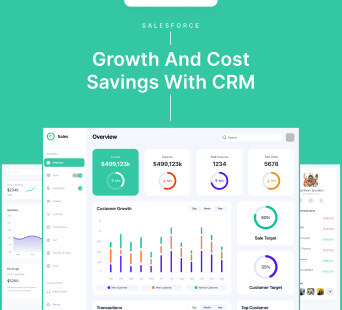Developers, data scientists, and companies use Scala to create their new projects and use other Play Framework and Apache Spark tools. In addition to being projects with a significant impact on the market, these tools were intentionally built in Scala.
Scala is executed on the JVM, allowing a beneficial connection with Java for both languages, and the developers, since they can program in Java and Scala simultaneously. This symbiosis allows the integration of its characteristics and libraries to inherit classes or implement interfaces.
We are talking about a multiparadigm programming language that combines properties of object-oriented languages with functional languages. Functions can be defined within functions within objects that are within any class. These conditions give it the possibility of carrying out many different utilities, such as Data Analysis, Web apps, or Data Streaming, among others.
Reasons to use Scala for your next project
1. Scalability
Scala is derived from the combination of Scalable and Language. So you can already get an idea about how strong this point is in this language. Scalability is the possibility of growing a business or project without having to re-invest in infrastructure. Thus, Scala is a language to facilitate the growth of development teams as much as possible.
2. Functional
Scala is also a functional language. Computing can be distributed across the cores in a multicore server and across the servers in a data center. This makes Scala an excellent choice for multicore CPUs and Cloud computing distributed workloads. This is essential for Big Data analysis scenarios.
3. Object-oriented
Like Java, Scala is also an object-oriented language. Developers from Java and other object-oriented languages can apply similar design patterns with Scala and take advantage of powerful object-oriented features like traits and mixin-based structure.
4. Static Typing
Scala is equipped with a typing system that statically forces abstractions to be used consistently and safely. This typing detects and prevents many types of application errors when compiling. Simultaneously, it has a sophisticated type inference system, which gives the possibility of freeing developers from having to write redundant typing information into the program.
5. Extendable
Scala contains a unique combination of language mechanisms that makes it easy to add new language constructs in library form or create DSL.
6. Productive
Thanks to its type inference system and other features, Scala is a concise language, giving developers the possibility to reduce the size of source code by a factor of 2 or 3 compared to Java. Scala brings with it a rich set of developer tools, which, to give you an idea, result in productivity similar to that of languages like Ruby or Python.
7. Interoperability With Java
Scala is compiled directly to Java bytecode, running on the Java Virtual Machine, taking advantage of the JVM's power and maturity, its garbage collector, and well-understood deployment techniques. By taking advantage of this, there is hardly any impact on the project's progress. Team operations won't see the difference. Developers will continue to work with their tools, but writing code that is shorter, faster, more scalable, and correct.
8. Open Source
Scala is an open-source language and available under the BSD-Style Scala License. It is available as part of the open-source Typesafe Stack.
9. Career Opportunities
Everyone in this world knows that any professional has guaranteed outlets. With Scala, it was not going to be an exception. What is true is that Scala offers a wide range of work to do, being part of the Big Data world, enlisting in the backend army where millions of data can be processed, or working in systems.
Hyperlink InfoSystem – A Leading Scala Development Company In UK
Hyperlink InfoSystem is a top Scala app mobile application development company. With the development of hundreds of native apps with functionality ranging from simple to complex, we are best suited to develop mobile applications for your company. We have experts in different aspects of Scala mobile app development, such as the user interface and user experience. Our attention to detail ensures that we excel in all our projects and have excellent customers' ratings. We are always evolving, and we use the best technologies for every project.
Some Excellent Scala Features
Syntax And Constructs:
- XML code can be included in the source, as does the Scriptol language.
- Numerous collection structures: List, Vector, Set, Map, Seq, Pair, Triple.
- The type val is equivalent to a constant, but you can initialize it with a variable.
- No break and continue.
- We define a class with the constructor in the header, which is more concise.
- No terminator such as; at the end of the instructions (but it can be added as an option).
- A function is defined by the def operator and the header is like in Pascal.
- The declarations are reversed with respect to C: we give the name of a variable then we define its type.
- Statically typed.
- Object-oriented: all values are objects.
- Functional: functions are values.
Other Possibilities:
- Regular expressions defined by procedural code.
- Nested functions.
- Abstractions.
- Polymorphic methods. The arguments can change type.
- We define a case class for pattern matching, in other words to select a class among others in a list according to a condition.
- Generic classes.
- A function can contain functions.
- Top-notch functions.
- Anonymous functions.
Scala's complex features promote better coding and offer increased performance. Functions, macros and tuples are just some of the advances that Scala offers. Scala incorporates functional programming and object-oriented programming in a powerful language.
Comparing Scala with a language like C ++ or Go is difficult. A better comparison is with Java. The reason we compare Scala to Java is because the language runs in the Java Virtual Machine environment.
Developers and those who hire them should leverage the strengths of Scala as a language to fully appreciate the functionality it offers. The language was developed to remove the restriction of Java, offering a cleaner and well-organized language.

























